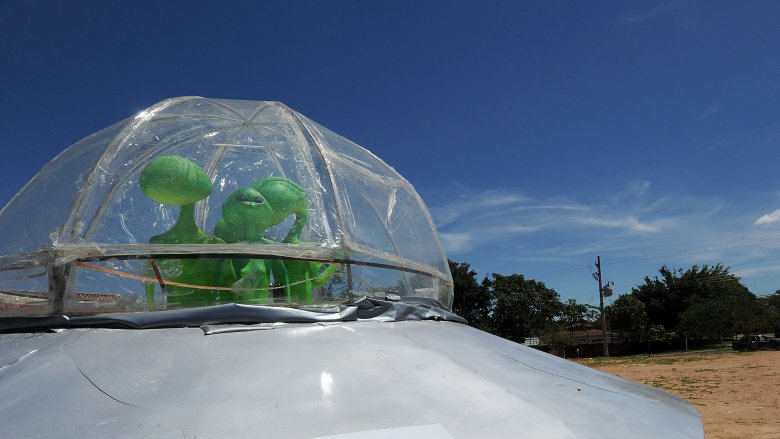What Does The Bible Say About Aliens?
For a decent chunk of the population, the Bible is the go-to, end-all resource for information about, well, everything. Want to know whether or not you're allowed to eat pygarg? The Bible's got you covered. Want to know how much of a mother goat's milk you should boil her baby in? Exodus 23:19 has the answer: maybe just don't do that. But what do we do when we have more complex questions? Questions like, "Is Chewbacca out there somewhere?" and "Is he going to heaven?"
Like just about everything else Bible-related, the answers are going to be about as varied as the folks discussing them, but let's look at the facts.
The Bible's view on aliens
Aside from that one verse in the Book of Elliot where a young Jesus lured E.T. into his room with a trail of Reese's Pieces (or maybe that was a NyQuil dream) the Bible doesn't explicitly state whether or not aliens exist, let alone if it would be a sin to go all Independence Day on some LGMs. That said, a lack of straightforward information has never gotten in the way of biblical scholars and the quest to probably stretch a metaphor or an iffy translation a little too far.
By way of example: in some translations, Genesis 23:4 reads, "I am a stranger and an outsider among you. Give me a burial site so that I can bury my dead." In other translations, the word "stranger" is interpreted as "sojourner," "foreigner," or "visitor." In a handful of versions, though, the word "alien" is used instead, giving conspiracy enthusiasts an inkling of a handhold to grasp to while screaming, frothy-mouthed, about how Kryptonian terraforming caused the Great Flood. Sure, the translators almost certainly meant a person-alien in the same way we mean people and not little green men when we talk about "illegal aliens" today, but that's not as much fun for anyone.

